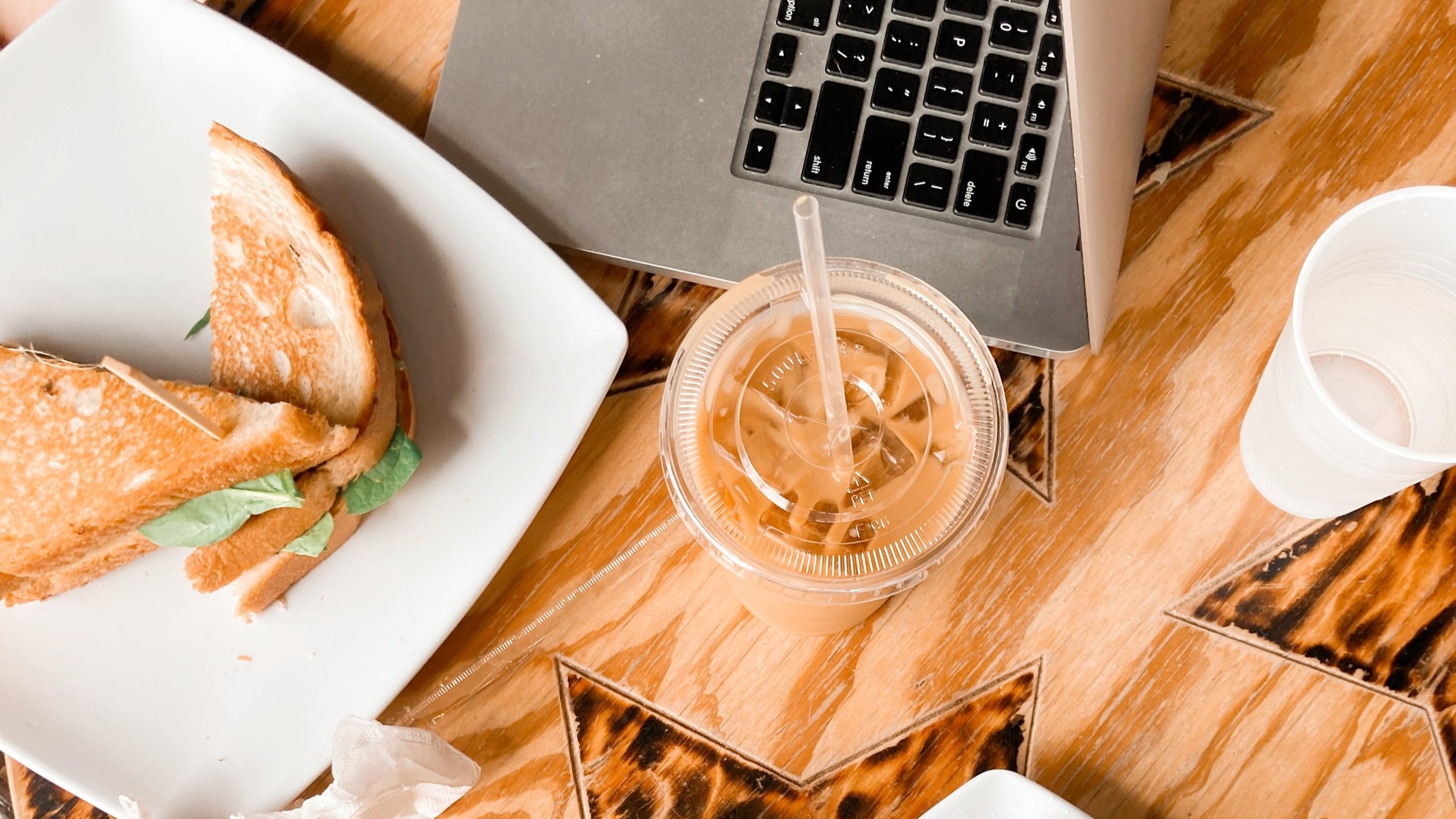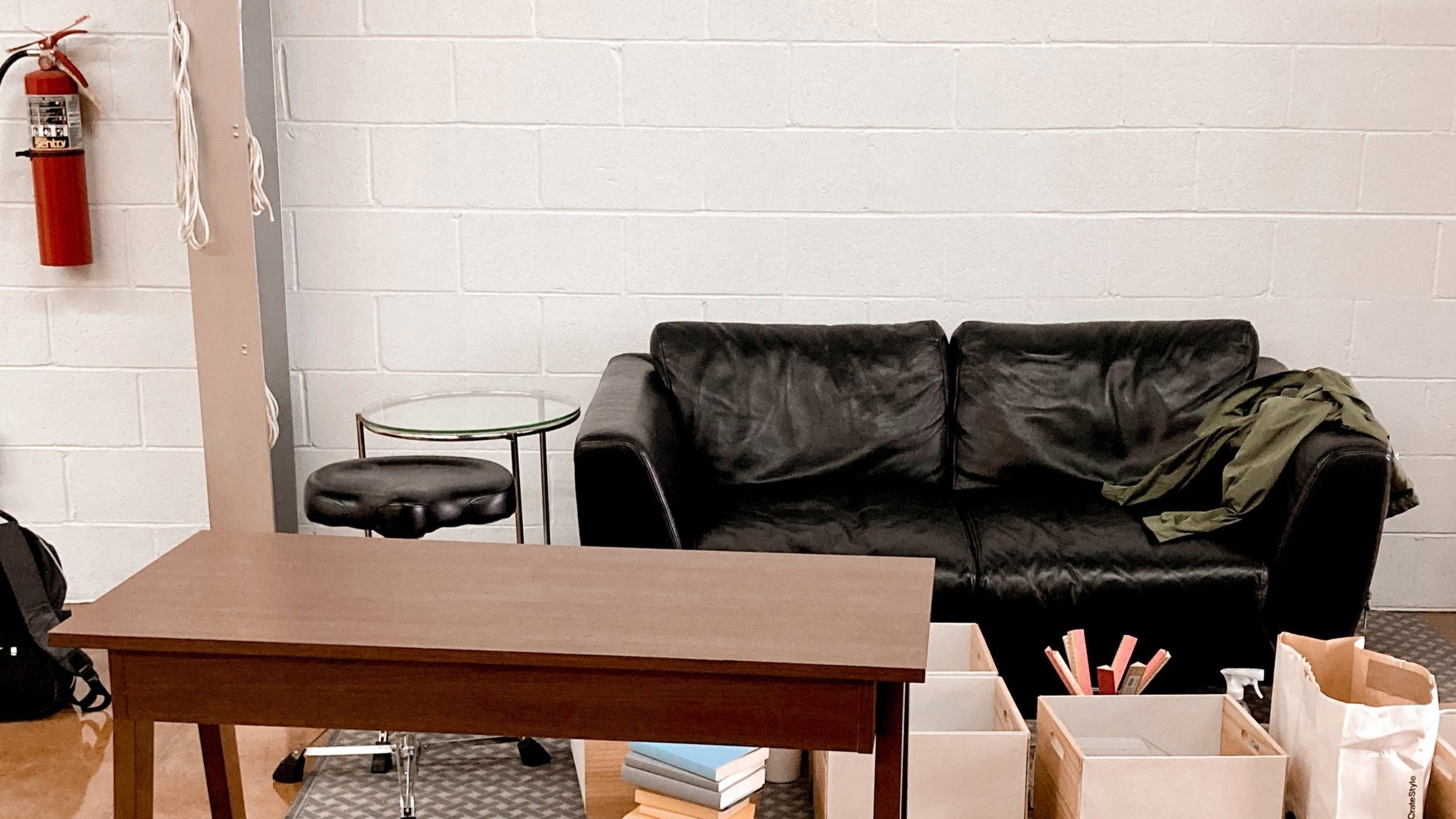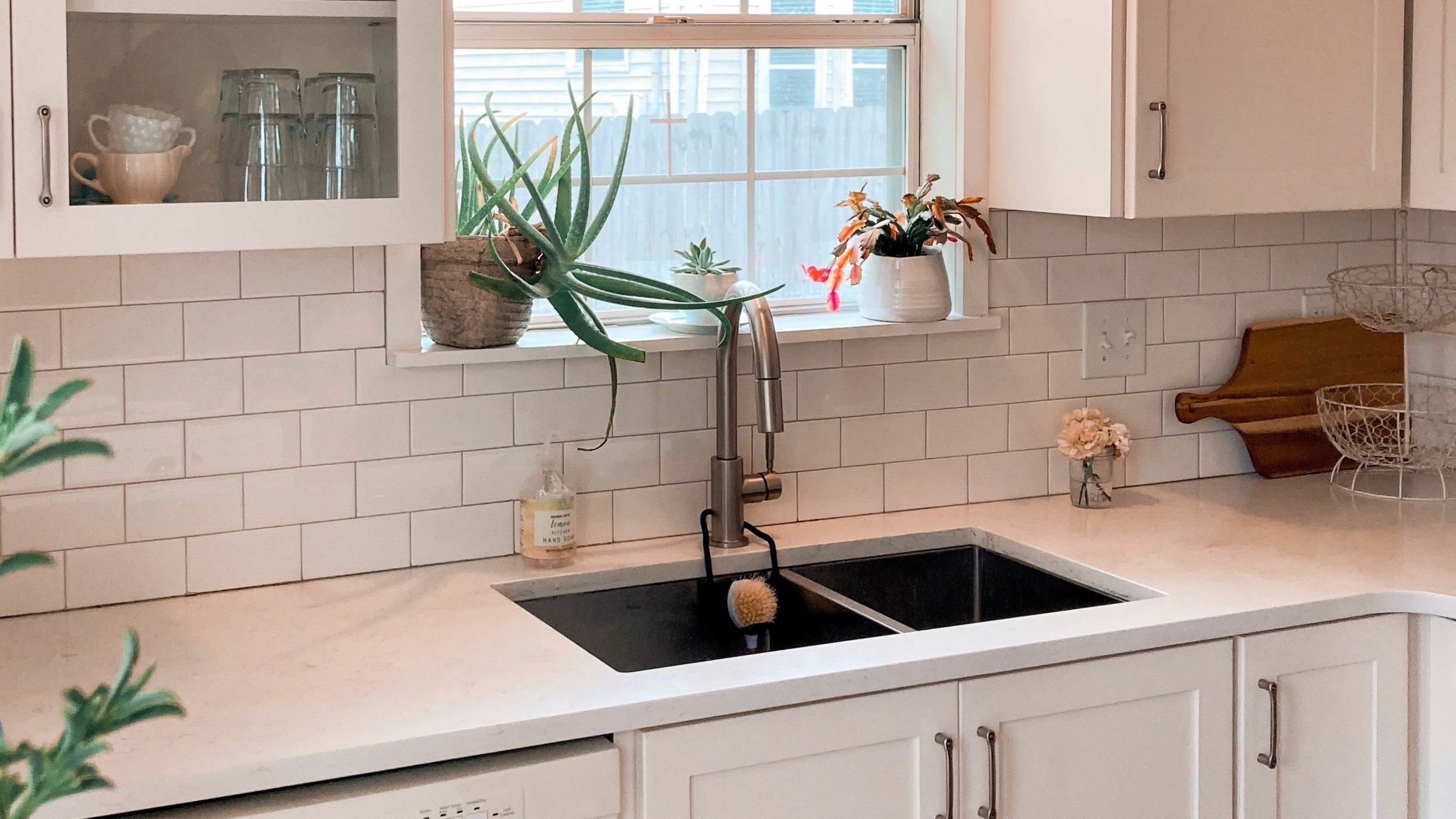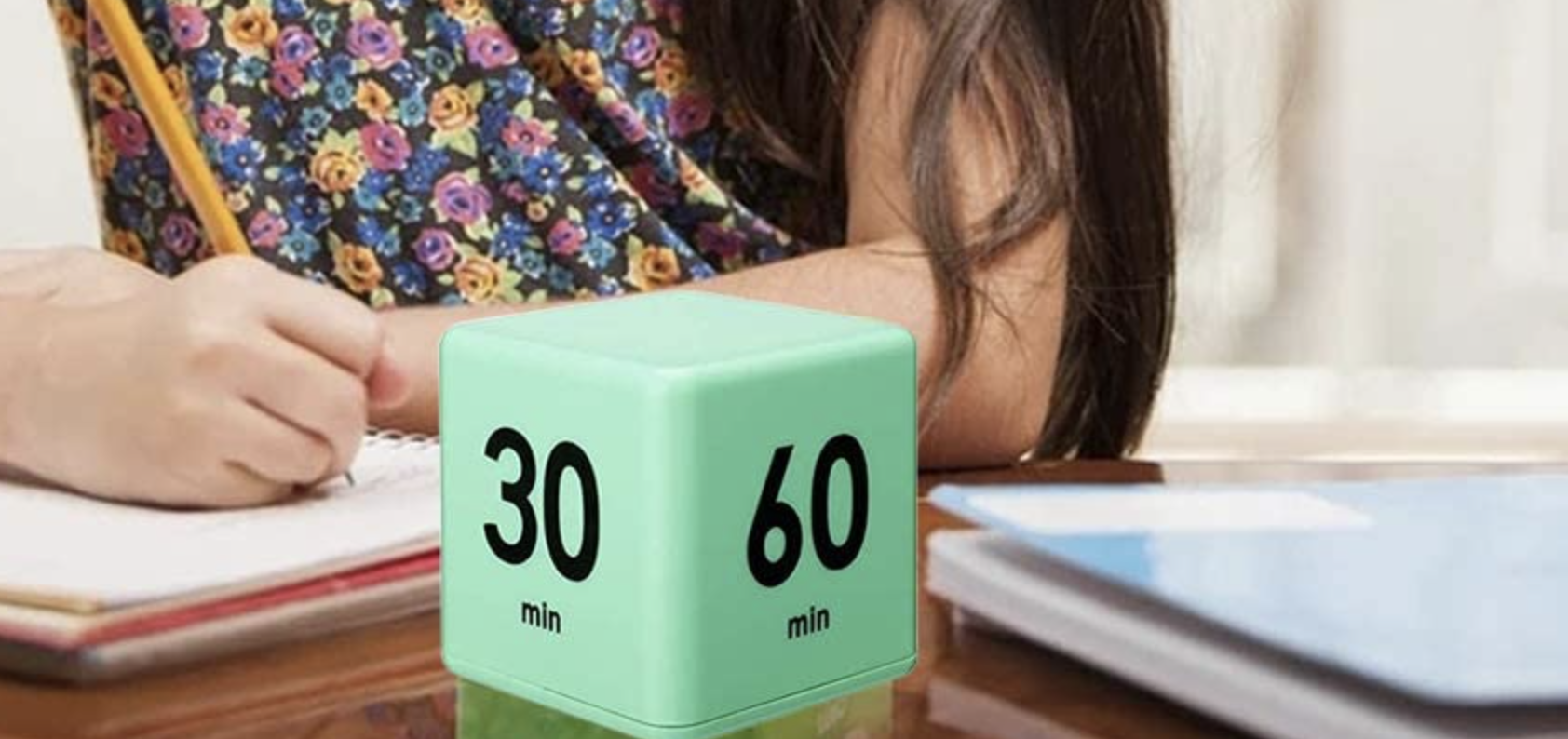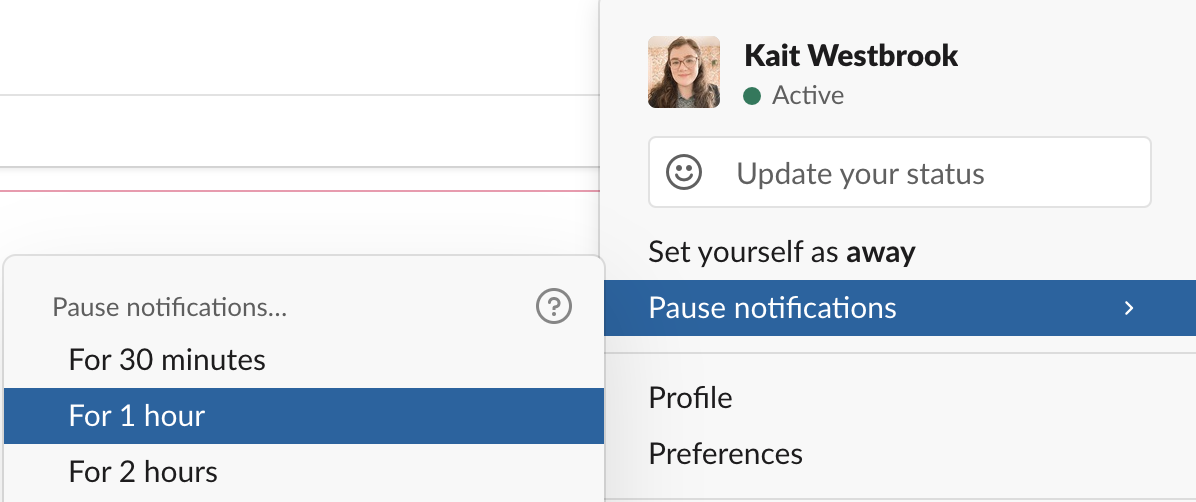Stay Focused: How to Concentrate on Work
Note: This post contains affiliate links, which means our business makes money if you buy something (at no extra cost to you).
I’m a classic procrastinator. Growing up, I would do homework at the last possible moment (as in, right before turning it in). Even now, as an adult, I have a hard time mopping the floor or making the bed without some kind of time limit. A lot of this has to do with the fact that I struggle to stay focused.
Unfortunately, staying focused is necessary for doing work, meeting deadlines, and basically, being a productive member of society. So, are there really ways to stay focused and concentrate on work? Yes, and we’ll go over some of them today.
Ways to maintain focus:
Choose a single task
Remove distractions
Play music
Set a timer
Turn off notifications
Separate from your phone
Plan a reward for yourself
Take mental health days
Choose a single task
Most of us have a number of tasks to do each day. When you think of all the things you have to do, it can quickly become overwhelming. And instead of doing all the things, it’s easy to feel paralyzed and do nothing. This is a phenomenon called choice paradox, meaning that when we have too many choices, we won’t make any. You can read more about it in Barry Schwartz’s book, The Paradox of Choice.
When we put tasks off, we may end up quickly trying to finish everything at the last minute. Now, this kind of procrastination can provide a rush, which is why some of us are habitual procrastinators, or why some of us constantly run late to events.
But in addition to the rush of adrenaline, a lot of us can feel negative emotions too, like shame or embarrassment. This is ironic, considering procrastination is often used as a way to regulate negative emotions we’re feeling in the moment. But if you can practice self-compassion for being a habitual procrastinator, you’re actually less likely to practice this bothersome habit later.
So, instead of trying to do it all, becoming overwhelmed, and procrastinating—it’s better to choose one hard or time-consuming task, and instead focus on that. An alternative to this is choosing a couple of smaller tasks, like answering emails or filling out that HR paperwork you’ve been putting off.
If you’re prone to guilt, this will curb some of those negative emotions and instead help you to feel accomplished. (At least, that’s how it works for me!)
Remove distractions
Ah, distractions: the kryptonite of anyone who struggles to stay focused. They come in all shapes and sizes, whether it’s good conversation or a new email. You’ll likely never remove all distractions, but you can curb some repeat offenders.
Removing distractions in an office
If you work in an office, your attention’s probably being pulled in several directions at all times. So, what do you do? In my experience, booking a conference room is perhaps the simplest way to limit the distractions of an office. Less people try to talk to you; you typically can’t hear other conversations; and best of all, you have a limited amount of time to do your task.
If you can’t book a conference room, noise-canceling headphones may be your new best friend. You can either use them to block out noise or play music (which I discuss more below).
Removing distractions in a remote work environment
For me, remote work is an excellent way to remove distractions, but not everyone feels that way. For many people, working from home is essentially a game of Minesweeper, where each chore is silently waiting to ruin your progress.
In this case, a schedule can help. For instance, maybe you reserve an hour for coffee, breakfast, and reading emails. The next hour, you focus solely on work tasks. Then, you give yourself thirty minutes to do dishes, walk the dog, or whatever your chores are.
Not every single hour is going to be devoted to work, and that’s okay. In an office, so much time is spent chatting, commuting, and running to meetings. You’re saving that time, so why not spend it on tasks now that will help you focus later?
If you stay glued to your chair, thinking, “I need to work,” you may expend energy feeling guilty. With a fresh mindset, however, you can complete tasks and change gears, no guilt required.
Play music
Not only does music drown out some of those outside noises, but it’s proven to help with concentration, since music activates both sides of the brain. But some researchers suggest varying types of music are beneficial for different tasks.
Below, we’ve put together a playlist for easy listening while you work. Spotify has several playlists like this made by other creators, so consider finding one that helps you check off your specific tasks.
And if you have mindless tasks that don’t require much thought (looking at you, spreadsheets), podcasts can be a great way to zero in and stay focused, too.
Set a timer
We already talked a bit about the time limit element of concentration. You can make this strict, like booking a conference room or setting a timer. Alternatively, you can make it looser, by giving yourself a three-hour window
If you do decide to use a timer, if may help to have something more visual than your phone. Personally, I use items more if I like the aesthetics of them. (Kinda silly but true.)
Consider getting a timer that fits your aesthetic and visually counts down the time for you. Below are some of our favorites!
I like that this one has different cases.
If a minute-by-minute visual countdown is distracting, here’s a more minimal option.
Turn off notifications
Between personal email, work email, Slack, and text messages, it can feel like you’re spending your entire day talking to other people. It may not be comfortable to make people wait, but sometimes putting your time first is the best option for everyone involved.
Consider closing out those email tabs for a while, pausing notifications on your Slack, and putting your phone on Do Not Disturb.
Have Slack on your desktop? Here’s an easy way to ensure that little red circle doesn’t derail your day. And if you’re in a lot of Slack groups that aren’t serving you, you can either leave them completely, or mute them so they’ll no longer notify you.
Separate from your phone
There are different ways of separating from your phone. Perhaps the easiest way is simply putting it in another room and shutting the door. Or maybe you put it on “Do Not Disturb” and set it on a surface far away from you.
Regardless of how you do it, you want to put your phone out of sight, and thus, out of mind. Fewer text conversations, less doom-scrolling, and more productivity for you.
Interestingly enough, I was gearing up to write this paragraph when I saw a friend post about her method of separating from her phone. Instead of placing it in a different room, she instead does a time lapse of herself working.
For some people, working with others gives them motivation to stay on track. By filming yourself working, you can potentially trick yourself into the same mindset. Whichever form of separation you choose, the conclusion is the same: Phones are bad for staying focused. (And if you’re a Social Media Manager, my thoughts are with you.)
Plan a reward for yourself
If you’re motivated by gratification, then why not reward yourself for staying focused and finishing tasks? This can be as simple as treating yourself to some outside time or as luxurious as buying yourself something nice.
Personally, I look forward to riding my stationary bike during the day, because it’s the one hour or so during my workday that I watch TV. I “tricked” myself into enjoying it by shaking up my schedule—usually I watch TV to unwind after work—and now it seems like a treat.
And because of that, I typically like to finish tasks early in the day so I can do it. Because who wants to cycle after the workday? Not me. That’s my pre-scheduled unwind time!
Take mental health days
Mental health days may seem a little unusual to those who don’t take them. Growing up, I only missed school if I was truly ill; mental health days definitely weren’t on my radar.
But as an adult, I love days like this. If I start feeling close to burnout, I take a couple days before a weekend and plan activities that are fun for me. Usually going to thrift stores or even just relaxing at home.
What’s more, people who take mental health days are likely to be more productive the days they do work.
Bonus: Creative hack
And if you have a creative job, here’s a bonus hack for you when it comes to staying focused at work. It may sound counter-intuitive, but don’t correct your mistakes. At least, not until you’re done.
When I write blog posts, I’m constantly under pressure to edit myself while I’m writing. I’m naturally inclined to work like this:
Write, edit, write, edit, find a picture, link to the picture, write, re-read, edit, write, research a link, read a few articles, get distracted, Google more articles, find the perfect link, then postpone the rest of the blog until tomorrow, because I’ve spent all day on one blog post.
In case you can’t tell, this is a horrible way to work. Now when I write blog posts, I simply write without stopping. If I make a mistake, big deal. I’ll catch it in the final edit. I use placeholders for external links and images, and I dedicate a different time slot to finding them.
This allows me to work so much faster than I would if I were constantly berating myself for mistakes and trying to find the perfect words/images/links at every moment.
Let yourself free-write or free-design, or simply brainstorm without shooting yourself down. Not everything you create will be good, but that’s okay. You’ll have time to perfect later.
Conclusion
If you struggle to stay focused, there are tricks you can employ to help.* Most people can’t work a solid eight hours a day without some breaks, motivation, and time to focus on other aspects of their lives.
The next time you’re feeling overwhelmed by your tasks or unable to shut out distractions, take a moment and consider what you can do to simplify that moment.
And if you’re still feeling overwhelmed, our team might be able to help. We take the responsibility of branding off you, so you can focus on other tasks. Plus, our first consultations are always free.
Good luck, and happy concentrating!
*Note: These are suggestions. If your inability to focus is affecting your quality of life, please consider speaking to a professional.

